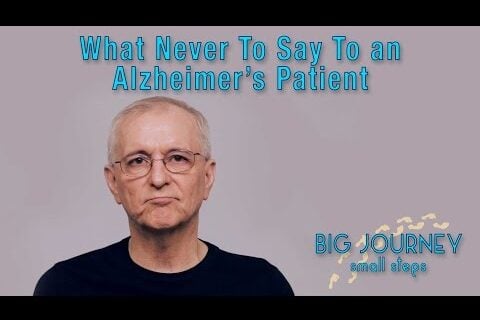Several human health care metrics have been used for years as key parameters in diagnostic decision making, fundamental to making treatment decisions. Most of us will be familiar with them: heart rate, usually obtained by taking our pulse or with an electrocardiogram; blood pressure by means of the sphygmomanometer inflated on our arm; oxygen saturation (a clamp usually placed on our finger); along with analytical parameters such as cholesterol levels.
Now, many of these parameters are being questioned. Not because they do not reflect important issues, but because of their arbitrariness. Primary health care staff are tired of blood pressure measurements that can vary a lot depending on whether the patient arrives at the consultation in a hurry, what they ate the night before, or whether they are stressed. These variations mean that, on many occasions, the decisions taken with respect to the dosage of medications, are taken practically at random.
If primary health care staff knows this, and who increasingly recommend obtaining several sequential measurements to try to average them out, with the time this entails, patients also know this perfectly well: eating fruit for lunch and dinner the day before a test makes your cholesterol levels appear noticeably lower, while, on the contrary, eating prawns makes your uric acid appear artificially high. In practice, many of the usual parameters are fragile measures that reflect a snapshot situation, not necessarily representative of the patient’s health.
Cardiologists also know this, which is why they use tools like the holter: since its inventor, Norman Holter, developed it in 1962 after more than a decade of development, holters have gone from being a heavy backpack to little more a sticker that is placed on the chest, and which collects cardiac electrical activity over a prolonged period, usually twenty-four hours. In many cases, an electrocardiogram appears completely normal simply because it has not coincided with the patient experiencing any type of complication during the short time monitored.
If the limitations of such instantaneous metrics are becoming more and more evident, and given the importance of health, perhaps it’s time to start using new technologies? If the availability of digital tools for monitoring multiple parameters is increasing, wouldn’t it be a good idea to incorporate their use?
On the other hand, in addition to improving the care of some individual patients’ conditions, surely creating detailed records of some metrics offers enormous opportunities for medical research, as well as driving significant advances in the treatment of many conditions or health problems.
We have known for many years that our approach to health care is poorly focused, and that a medicine divided into specialties and based on specific symptomatology does not offer the best guarantees. Elderly people subjected to a disproportionate variety of treatments and who end up being prescribed huge amounts of medication they than don’t adhere to are proof of this: it is quite possible that a more holistic approach, based on regular monitoring, could offer much better results.
Health care is based on a fundamental axiom: you go to the doctor when you feel unwell, when you notice a certain symptom, when you receive evidence of a problem. What would happen if we saw that this approach was radically wrong, and that what we should be doing is treating our health preventively, before any symptom occurs?
Why are we wasting our time trying to outsmart algorithms, when we could be applying machine learning to data acquired through our smartphones and other devices, allowing our doctor, after running that data through an algorithm, to treat a problem before any symptoms arise? There are obviously privacy issues, but nothing that can’t be overcome with a little imagination and will power.
Such an approach would mean not only less suffering for patients, but reduce our ballooning health budgets, as physicians would detect disorders earlier. Basically, something positive for all involved, and for society as a whole if, in addition, it allows us to better understand our body and our diseases.
Shouldn’t we aspire to refocus healthcare based on such an approach? Is it really so much to ask?
—
This post was previously published on Enrique Dans’ blog.
***
You Might Also Like These From The Good Men Project
 .10 Things Good Men Should Never Do in a Relationship
.10 Things Good Men Should Never Do in a Relationship  The One Thing Men Want More Than Sex
The One Thing Men Want More Than Sex  .. In Modern Relationships, We Cheat Every Single Day
.. In Modern Relationships, We Cheat Every Single Day  Here’s What Happens When You Find The One
Here’s What Happens When You Find The One Join The Good Men Project as a Premium Member today.
All Premium Members get to view The Good Men Project with NO ADS.
A $50 annual membership gives you an all access pass. You can be a part of every call, group, class and community.
A $25 annual membership gives you access to one class, one Social Interest group and our online communities.
A $12 annual membership gives you access to our Friday calls with the publisher, our online community.
Register New Account
Log in if you wish to renew an existing subscription.
Username
First Name
Last Name
Password
Password Again
Choose your subscription level
- Yearly - $50.00 - 1 Year
- Monthly - $6.99 - 1 Month
Credit / Debit Card PayPal Choose Your Payment Method
Auto Renew
Subscribe to The Good Men Project Daily Newsletter By completing this registration form, you are also agreeing to our Terms of Service which can be found here.Need more info? A complete list of benefits is here.
—
Photo credit: iStock
The post Why Aren’t Algorithms Being Used to Improve Health Care? appeared first on The Good Men Project.
Original Article










